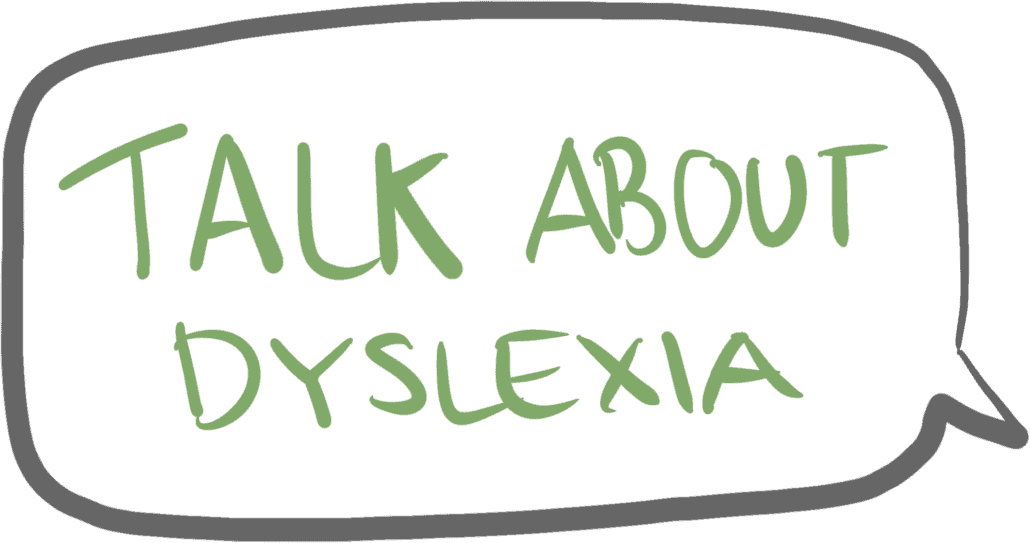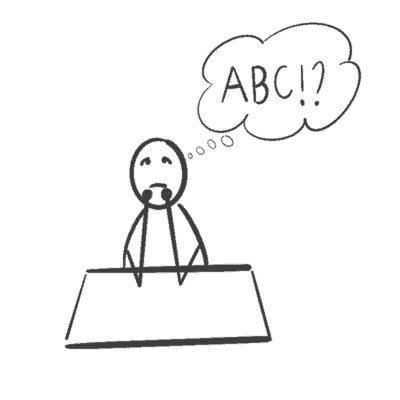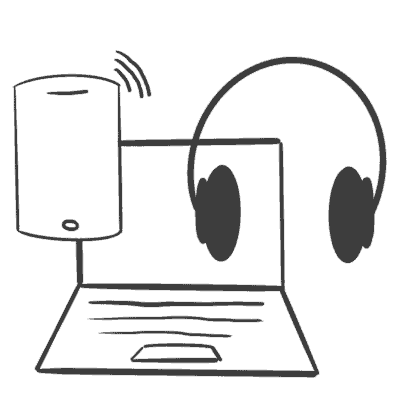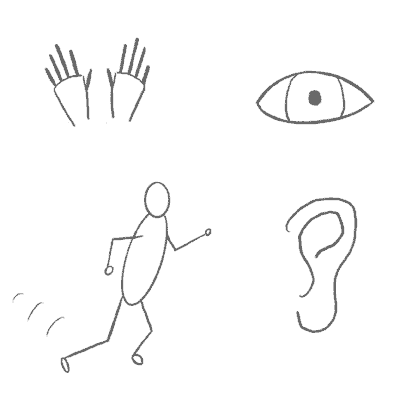Does your child have trouble reading?
“Help! What do I do? How do I help my child learn how to read (and spell)?”
You might be tempted to cram letters with your child.
But that is of no use.
However, it helps if you talk with your child about the following:
1) How it feels to have difficulty reading
2) What it means to have reading difficulties.
By discussing these points, you can make a difference for your child.
Your child sees the reading challenge differently than you do.
There are two ways of looking at the challenge; from your perspective and your child’s.
Your child sees the challenges of their world, and you have to be right there if you are to help them.
Are you ready?
Then let’s take a closer look at your child’s reading difficulties together.
My child is dyslexic
“What is dyslexia, and what does it mean for my child?” Have you also been searching for answers to that?
Understand your dyslexic child
It can be challenging to be a parent and help with the homework without getting frustrated.
Use the apps and tools
Have you also thought about what apps and programs are best? Then your child could get their homework done without issues…
WHAT YOU ARE SEEING
You see that your child finds it difficult to read (and spell).
And you see that your child either reacts in an introverted or extroverted way compared to other learning situations.
That could be, for instance, getting angry and making trouble or being sad, withdrawing, and remaining quiet.
What you are seeing is both the specific reading difficulty and the psychological consequences of finding it difficult to read.
Let’s take a closer look at the first—the reading difficulty itself.
Your child’s reading difficulties appear because the requirements for their reading are bigger than their abilities (Elbro, 2007). If there were no demands on your child’s reading level, you (and other adults) would not be able to say that your child had reading difficulties.
But the written language is a great way to acquire knowledge (for many people), so we will continue to face requirements for reading levels in our society.
Therefore, your child will have reading difficulties if your child is not reading at the expected level.
However, that is not the same as saying that your child will be unable to reach the expected reading level.
The reading difficulty might be because your child has so-called decoding or comprehension difficulties. Or both (Samuelsson et al., 2012).
Decoding difficulties are due to a disability in the brain’s language center that makes it difficult to translate letters to sounds. That is what causes dyslexia, which you can read more about here.
Comprehension difficulties can be due to the following:
● Small vocabulary for the child’s age
● Low working memory
● Lack of ability to connect knowledge in the text and connect that knowledge from the text with knowledge outside the text (Samuelsson et al., 2012)
The list is not exhaustive.
Reading difficulties typically appear when your child starts school, where there are demands on reading abilities.
The best you can do to help your child develop their reading competence is to find professional help with reading.
It is important to seek help that is based on research since reading difficulties do not have a single cause.
A good understanding of the causes of your child’s reading difficulties is crucial to what kind of professional help your child needs.
It is a good idea to start by contacting your child’s English teacher or a reading specialist if you observe that your child has reading difficulties.
READING ASSISTANCE IS NOT ENOUGH ON ITS OWN
Here, you are the biggest help for your child.
You can see the psychological consequences of having a hard time learning how to read. If your child is not receiving help to manage it, it will be difficult to get the full benefit from any extra reading assistance.
The feeling of defeat has maybe already been planted in your child, and it has to be dealt with before your child is ready to receive extra reading assistance.
That brings us to the other point of view when it comes to your child’s reading difficulties—your child’s.
Your child does not see, as you and other adults can, that they have reading difficulties because society conveys these demands on a person’s reading level.
The dyslexic brain
Have you also been wondering if there is something wrong with your dyslexic child’s brain? That is, why the head cannot comprehend those pesky letters.
Accepting the dyslexia
Is your child also finding it difficult to talk about their thoughts and emotions when the letters are teasing them?
Motivation to read
Would you also like to motivate your child to read more? And is it difficult to find the right “carrot”?
WHAT YOUR CHILD IS SEEING
Instead, your child sees that he or she cannot do the same things as their peers. Your child sees that other children can read the texts in school. It influences your child’s thoughts about themself.
This means that children with reading difficulties do not see their reading difficulties, but they view the world from within their reading difficulties (Holmgaard, 2009).
Your child sees reading situations with the emotional consequences that a reading difficulty can provoke.
Your child can easily feel different, alone, and stupid. And perhaps guilty for not being as good as the other children.
It might be that your child feels a sense of defeat and feels “wrong” compared to others.
How your child’s feelings are influenced depends on the individual, but children with reading difficulties all have extra things to work through when they are learning how to read.
That is the feelings that occur when you are not like other children.
Therefore, it is essential to work with your child’s self-confidence and self-worth so they can handle the emotional challenges that reading difficulties can cause.
It is also on the emotional level where you, in particular, can help your child. Because it is your child, and you know them best.
WHAT YOU CAN DO
First and foremost, you can start by speaking to your child about the thoughts and emotions that you observe through their behavior. In that way, your child can open up about feelings that you hadn’t even considered.
At the same time, you can help your child figure out what to do when the feelings become overwhelming.
One benefit of speaking with your child is that your child will feel seen and understood. Your child sees that he or she is not wrong or alone. That helps their self-worth.
Self-worth is especially important when your child has to work through the obstacles with the letters.
Your child sees that they need to use more energy than their classmates do on the letters. Your child needs to know that they are just as valuable as other children, even if the letters show that others are better at reading.
Furthermore, many children can benefit from understanding what reading difficulties are. It means that you can also help your child understand what it means to have difficulties with reading (and spelling).
Although reading is a way to do well in school, that doesn’t mean you cannot improve and achieve your dreams. And this difficulty is not the same thing as not being able to learn anything.
You, your child, and I do not learn similarly. Maybe your child learns by listening while you learn by watching, by touching things, or by moving around.
Learning styles are individual. It is not certain that your child learns the best by reading, no matter if they are good at reading or not.
So, my advice to you is, unsurprisingly, that you should look at the challenges from your child’s point of view.
1 – Speak to your child about feeling different
The first thing your child notices is that they are different than their peers in school. This can give your child a lot of negative emotions tied to being outside “the norm.”
We all thrive on acknowledgment and connection with others. That is true for you, your child, and me.
So, start helping your child speak about their emotions. Make your child realize that they are not stupid, wrong, or lazy.
….
Yes, I’ll admit it. It can be really hard. Where to start?
Maybe your child shuts down, turns moody, or exhibits a third option whenever you ask how things are going with school.
2 – Tell your child what it means to have reading difficulties
Your child isn’t stupid.
A person can always practice and become better.
Already, here your child will see that there is hope and that the letters don’t have to dominate their life.
The letters also don’t have to decide how your child learns the best.
That’s why I have written this article on learning styles, which you can use for inspiration and make your child aware of their possibilities.
3 – Speak with your child’s teacher and other professionals
The difficulty with learning how to read must be handled by a competent professional.
There is not a single solution for all children. Your child does not fit into a particular box of learning (speaking of learning styles!).
What helps your child become better at reading (and spelling) depends on what particular challenge your child has. Professionals can help to figure that out.
So, speak with your child’s teacher and reading specialists at your child’s school. If you seek further help, then carefully assess any offers of “healing” that you might bump into in your research.
Learning styles as a dyslexic person
Many believe that a dyslexic person has more difficulties learning and fewer options for further education. But that is not true…
The joy of learning new things
Feelings are the primary motor for learning. Do you also wish that your child would be more eager to learn new things in school?
Jesper Sehested
Dyslexic, author, speaker and mentor
Sources:
Elbro, Carsten (2007), ‘Læsevanskeligheder’
Samuelsson, Stefan, m.fl., (2012), ‘Dysleksi og andre vanskeligheder med skriftsproget’
Holmgaard, Aase (2009), ‘Tegn på læsevanskeligheder’









